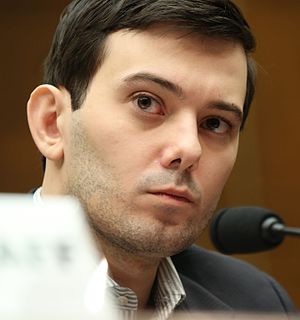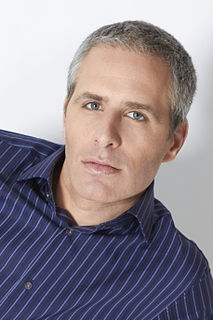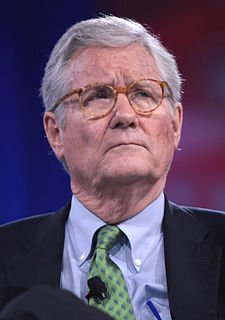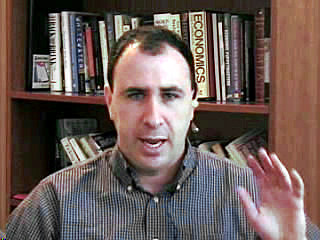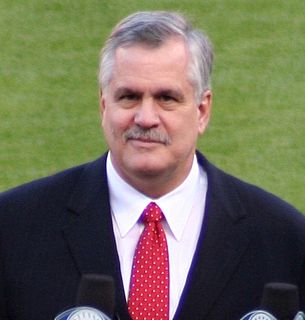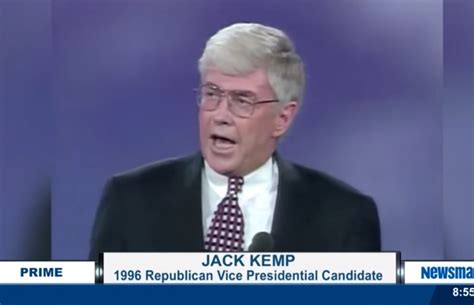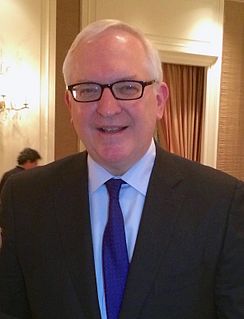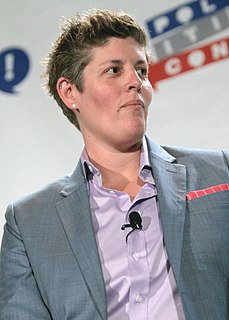A Quote by Joy-Ann Reid
That this is not a sense of innovation and competition increasing prices because some other company is coming in and competing with Martin Shkreli. This is literally a monopoly.
Quote Topics
Related Quotes
If a company is not a monopoly, then the law assumes market competition can restrain the company's actions. No problem. If a monopoly exists, but the monopoly does not engage in acts designed to destroy competition, then we can assume that it earned and is keeping its monopoly the pro-consumer way: by out-innovating its competitors.
The mere possession of monopoly power, and the concomitant charging of monopoly prices, is not only not unlawful, it is an important element of the free-market system. The opportunity to charge monopoly prices - at least for a short period - is what attracts 'business acumen' in the first place; it induces risk taking that produces innovation and economic growth.
We have this highly irrational system of incentivizing innovation for clean and green technologies, where we allow the innovator to have a temporary monopoly and then mark up the price of the product or sell licenses at high prices to those who want to use the kind of product that the innovator has invented. This system is collectively irrational because many people, to avoid the inflated prices of still-patented cleaner and greener technologies, opt for some older technology that is much more polluting.
Under the antitrust laws, a man becomes a criminal from the moment he goes into business, no matter what he does. If he complies with one of these laws, he faces criminal prosecution under several others. For instance, if he charges prices which some bureaucrats judge as too high, he can be prosecuted for monopoly or for a successful 'intent to monopolize'; if he charges prices lower than those of his competitors, he can be prosecuted for 'unfair competition' or 'restraint of trade'; and if he charges the same prices as his competitors, he can be prosecuted for 'collusion' or 'conspiracy.'
I think competition can make people stronger at whatever it is they're competing on. If we're competing in some athletic event for competitive swimmers, really intensely competing, it's likely that both of us will become better, but it's also quite possible we'll lose sight of what's truly valuable.
Extrapolated, technology wants what life wants:
Increasing efficiency
Increasing opportunity
Increasing emergence
Increasing complexity
Increasing diversity
Increasing specialization
Increasing ubiquity
Increasing freedom
Increasing mutualism
Increasing beauty
Increasing sentience
Increasing structure
Increasing evolvability

